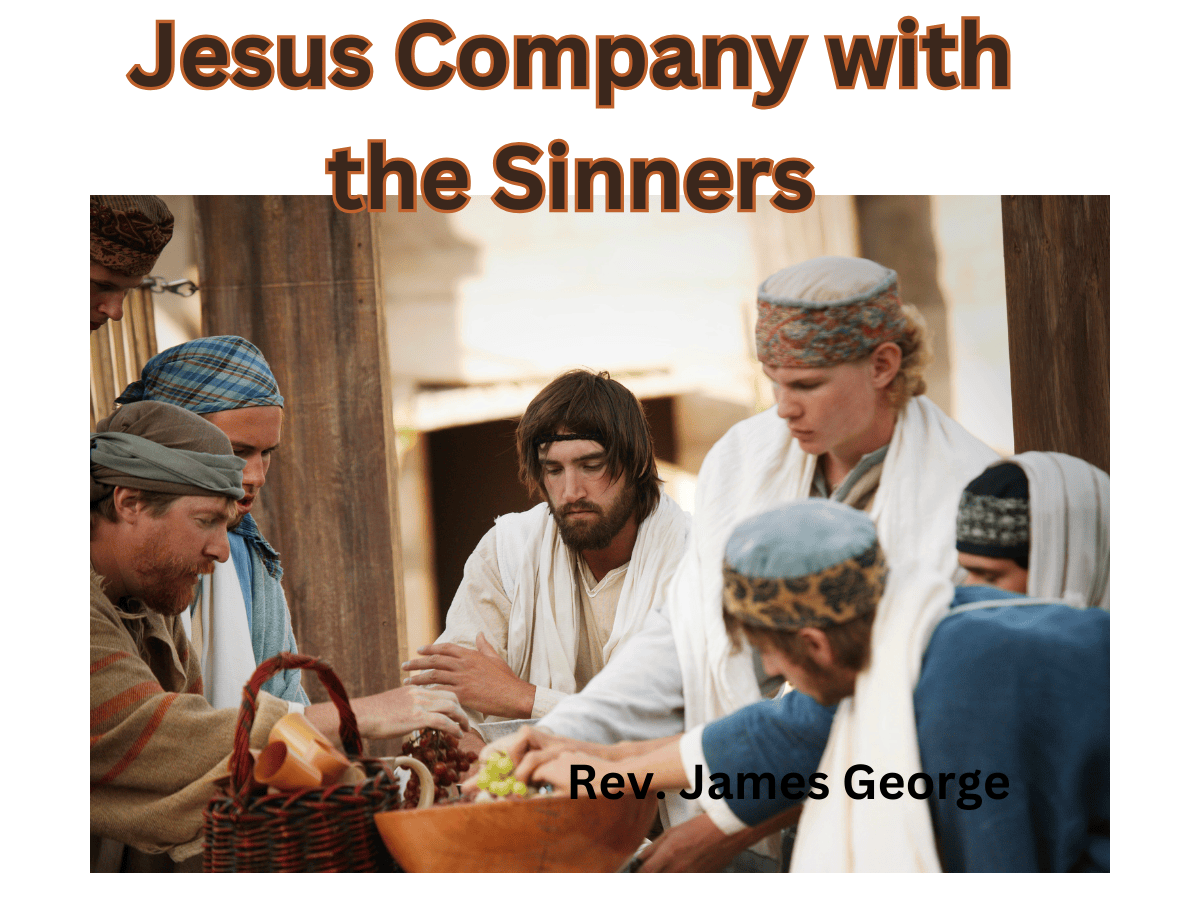
‘While Jesus was having dinner at Levi’s house, many tax collectors and “sinners” were eating with him and his disciples, for there were many who followed him. When the teachers of the law who were Pharisees saw him eating with “sinners” and tax collectors, they asked his disciples: “Why does he eat with tax collectors and ‘sinners’?” On hearing this, Jesus said to them, “It is not the healthy who need a doctor, but the sick. I have not come to call the righteous, but sinners.” (Mk.2:15-17).
Jesus’ company with marginalized section of the community always provoked anger among the ‘law keepers’ or Pharisees. The word Pharisee means, ‘The separated one.’ They separated themselves from other Jews by their conduct and life-style in order to observe the law. They often criticized Jesus, illustratively ‘this man welcomes sinners and eats with them’ (Lk.15:2), ‘here is a glutton and a drunkard, a friend of tax collector and sinners’ (Mt.11:19), “If this man were a prophet, he would know who is touching him and what kind of woman she is – that she is a sinner.” (Lk.7:39).
According to the Old Testament, a sinner is one who ‘breaks or disregards the law’. Since sin means breach of law, a sinner by definition is any one who is outside the law. In Psalms, the word used for sinners is ‘wicked’ and in Greek translations, it is ‘lawless’ and finally coming to the English translation, the word used is ‘sinners.’ Since the tax collectors, were more in contact with the Roman Empire, they gave little importance to Jewish laws and hence were looked down as law breakers and sinners.
These tax collectors thus were considered outside the boundaries of conduct appropriate to the people of God. Why did the Pharisees oppose Jesus’ company with sinners? The law required that the offender ‘must make restitution in full, add a fifth of the value to it and give it all to the owner (Lev 6:5)’. Jesus was seen to be in their company, without asking them to do the restitution. Jesus taught that the ‘sinners’ who followed him, even without a technical requirement of the law (Lev. 6:1-7) would be in the Kingdom of God.
Jesus says in Matthew, that such law-breakers, who according to the Pharisees were sinners, would be ahead of those who were righteous by the law in entering the Kingdom of God (Mt.21:31). Here Jesus is so radical and far more arrogant according to the common view. If he did not stress any need for repentance of the sinners, interestingly Jesus turned the table on the law keepers.
When Pharisees tried to categorize others as sinners, Jesus tells them that you need a physician because your ill affected attitude of treating others as unimportant should change – a repented heart to accept others. Therefore, according to Jesus, it is not the law-breakers or sinners in the company of Jesus who need to repent but it is those who considered themselves as the technically ‘righteous’ people who needed repentance. In the present world, many are comfortable in behaving like Pharisees in prescribing repentance for others.
Capitalistic countries ask the smaller and poorer countries to be like themselves through marketization and liberalization. In Churches, repentance is commodified into being a good giver of charity to the Church, pastors and church building. Even many theologians categorize themselves in the elite group. We see a paradigm shift in the vales of Jesus. In our day-to-day life, we categorize some people as sinners.
Our hypocrisy makes us to proclaim some activities as sin. More dangerously, our hypocrisy blinds us toward destructive structures, in not considering them as sin. Jesus used the word repentance often in the presence of either Pharisees or rich. Here, in today’s context, going along the lines of Jesus, it is not the people who are suffering in the bondage – who are already in the shackles that need to repent, rather it is those who have ‘created’ these ‘sinners’ who have to repent. Unless we repent and consider our fellow beings as human beings, we are all sinners. Christ is challenging us to stand against oppressive and divisive structures.
Author: Rev. James George is an ordained minister of the Mar Thoma Church


